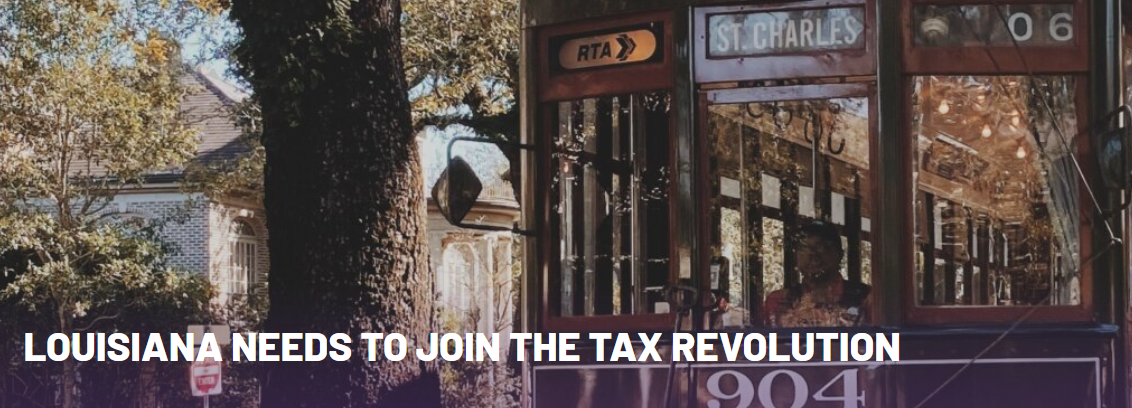|
It’s time for Louisiana to join the flat tax revolution. Four states passed a flat personal income tax this year after only four did over the 100 years, bringing the total to 14 states that have or will soon have flat income taxes.
Flattening income taxes provides more opportunities for people to flourish, but eliminating them is best to provide even more prosperity and individual liberty to keep the fruits of your labor. These tax reforms start with spending restraint. Economic data show that the nine states without a personal income tax outperform, on average, the nine states with flat income taxes in economic growth, domestic migration, and non-farm payroll employment over the last decade. Georgia (2024), Idaho (2023), Iowa (2026), and Mississippi (2023) passed flat-income taxes this year. Arizona is set to have a flat income tax in 2023 at 2.5%, which will be the lowest rate in the nation. Through those reforms, these states will have more opportunities to improve the number of well-paid jobs, sectoral growth, and other benefits that advance thriving communities. This contrasts with progressive personal income taxes that disincentivize people from working and living in those states. This is happening in California, where even its wealthy citizens are leaving as personal income taxes soar, and it’s likely to get worse as the top marginal tax rate rises to 14.4% in 2024. Progressive, high-income tax structures produce undesirable outcomes, and states should work toward eliminating personal income taxes. Of course, other taxes and policies matter. Louisiana took a great step in the right direction by dropping our progressive rates and putting in revenue triggers that will lower them further over time. Yet flattening them to one rate would be the best next step. According to the Tax Foundation’s recent report, states without a personal income tax or lower tax burdens overall rank the highest in business tax climate, with Wyoming (1st), South Dakota (2nd), Alaska (3rd), and Florida (4th) leading the way. And those states with the highest personal income rates perform worst, with California (48th), New York (49th), and New Jersey (50th) being last. Louisiana ranks 39th, its best ranking since 2017, after improving three spots from the recent tax reforms. But the state remains near the back of the pack, which could be improved by continuing to cut away at the personal income tax. What would help fund limited government spending with an improved tax system? The increased economic activity from an improved tax system will help increase tax revenue collections, as the state would move more towards a consumption-based tax system. The least burdensome form of taxation tends to be a flat final sales tax with the broadest base and lowest rate possible. Taxing consumption results in less consumption but more savings, which can support greater capital accumulation and economic growth. The ultimate burden of government is how much it spends. Jonathan Williams, who is a co-author of the ALEC report on economic performance by states, recently said, “There are nine states with no income taxes, and they spend substantially less per capita than states with an income tax.” Given major headwinds from D.C., it’s time for Louisiana to join the flat tax revolution by strengthening the state spending limit and flattening its personal income taxes until ultimately eliminating them. Originally published Pelican Institute
0 Comments
Leave a Reply. |
Vance Ginn, Ph.D.
|


 RSS Feed
RSS Feed